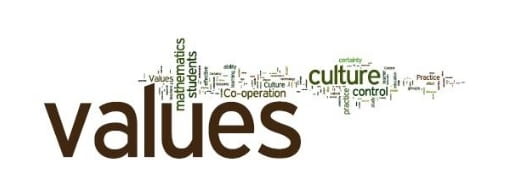Study 12: Valuing in Confidence [ViC]
Analysis of the Trends in International Mathematics and Science Study (TIMSS) 2019 data for more than 21,000 students in East Asia (i.e. Chinese Taipei, Hong Kong, Japan, Korea, and Singapore) had revealed 11 variables which best predicted these students’ world-leading performance (Wang, King & Leung, 2022). Amongst these, the most significant variable was reported to be students’ confidence in mathematics. Yet, at both Grades 4 and 8, the mathematics confidence levels of these East Asian students were amongst the 9th and 13th lowest when compared amongst the 58 and 39 participating jurisdictions respectively (Mullis et al, 2020). Table 1 summarises these rankings.

Of course, there is the possibility of the East Asian students under-reporting their confidence levels against a cultural context of humility. The extent of this under-reporting may be hard to ascertain, but it is fair to argue that any correction for this will still not propel the East Asian jurisdictions to the top of the ranking in a way which matches their performance ranking.
We are thus left with a situation in which student confidence in mathematics predicts performance in East Asia, but it does not appear to do so elsewhere. Given that TIMSS 2019 regards student confidence in mathematics as the extent to which students think they can do mathematics well (Mullis et al, 2020), might there be culturally different values relating to ‘doing well in mathematics’? If this is so, then the paradox can be explained by examining the degree of alignment between these values and what are valued in the relevant assessment exercise. For example, a student may embrace the valuing of accuracy in relation to doing well in mathematics, when another student may value understanding instead. Both can be feeling very confident about their ability to do well in their respective mathematics learning, yet when faced with an assessment exercise whose design awards accurate answers, the first student will be perceived as achieving in the assessment, when compared to the second student.
Thus, if we aim to nurture students’ confidence in their mathematics learning, we need to know and understand what attributes need to be valued which are aligned with (assessment) expectations of this mathematics learning. In this study, we pose the following Research Questions:
RQ 1: For students in <participating country name> who are confident in mathematics, what do they value in relation to doing well in mathematics?
RQ 2: How do these values compare with those embraced by their peers who are not confident in mathematics?
RQ 3: For students in East Asia who are confident in mathematics, what do they value in relation to mathematics learning?
RQ 4: For students in East Asia who are not confident in mathematics, what do they value in relation to mathematics learning?
RQ 5: For students outside East Asia who are confident in mathematics, what do they value in relation to mathematics learning?
RQ 6: How might students’ values contribute to a deeper understanding of the relationship (if any) between student confidence and students doing well in mathematics?
It is expected that these findings can translate to useful and enabling teaching approaches for mathematics classrooms around the world.
Leader:
Prof Wee Tiong SEAH (The University of Melbourne, Australia)
Research teams:
| Jurisdiction | CI | Participants |
|---|---|---|
| Australia | Prof Wee Tiong SEAH Faculty of Education, The University of Melbourne | |
| Chile | Dr Claudia Vargas Universidad de Santiago de Chile | |
| China | Prof Heng Jun TANG Zhejiang Normal University | |
| Germany | Dr Ralf ERENS Pädagogische Hochschule Freiburg | 146 |
| Italy | Dr Camilla Spagnolo Università degli Studi di Ferrara | |
| Korea | Prof Jeong Suk PANG Korea National University of Education | |
| Taiwan | Dr Sandra Yu-Shan TING National Cheng Kung University | 335 |
| Thailand | Dr Narumon CHANGSRI Khon Kaen University | |
| Vietnam | Dr Lien Le Thi Bach Ho Chi Minh University of Education | 474 |
Instruments:
Questionnaire (English version 3 – DEMO)
Questionnaire (simplified Chinese version)
Questionnaire (traditional Chinese version)
Questionnaire (German version)
Questionnaire (Italian version)
Questionnaire (Korean version)
Questionnaire (Spanish version)
Questionnaire (Thai version)
Questionnaire (Vietnamese version)
Codebook [please email Wee Tiong for a copy]
 To stay informed of news, discussions and upcoming events, click ‘subscribe’ near the lower right corner below.
To stay informed of news, discussions and upcoming events, click ‘subscribe’ near the lower right corner below.